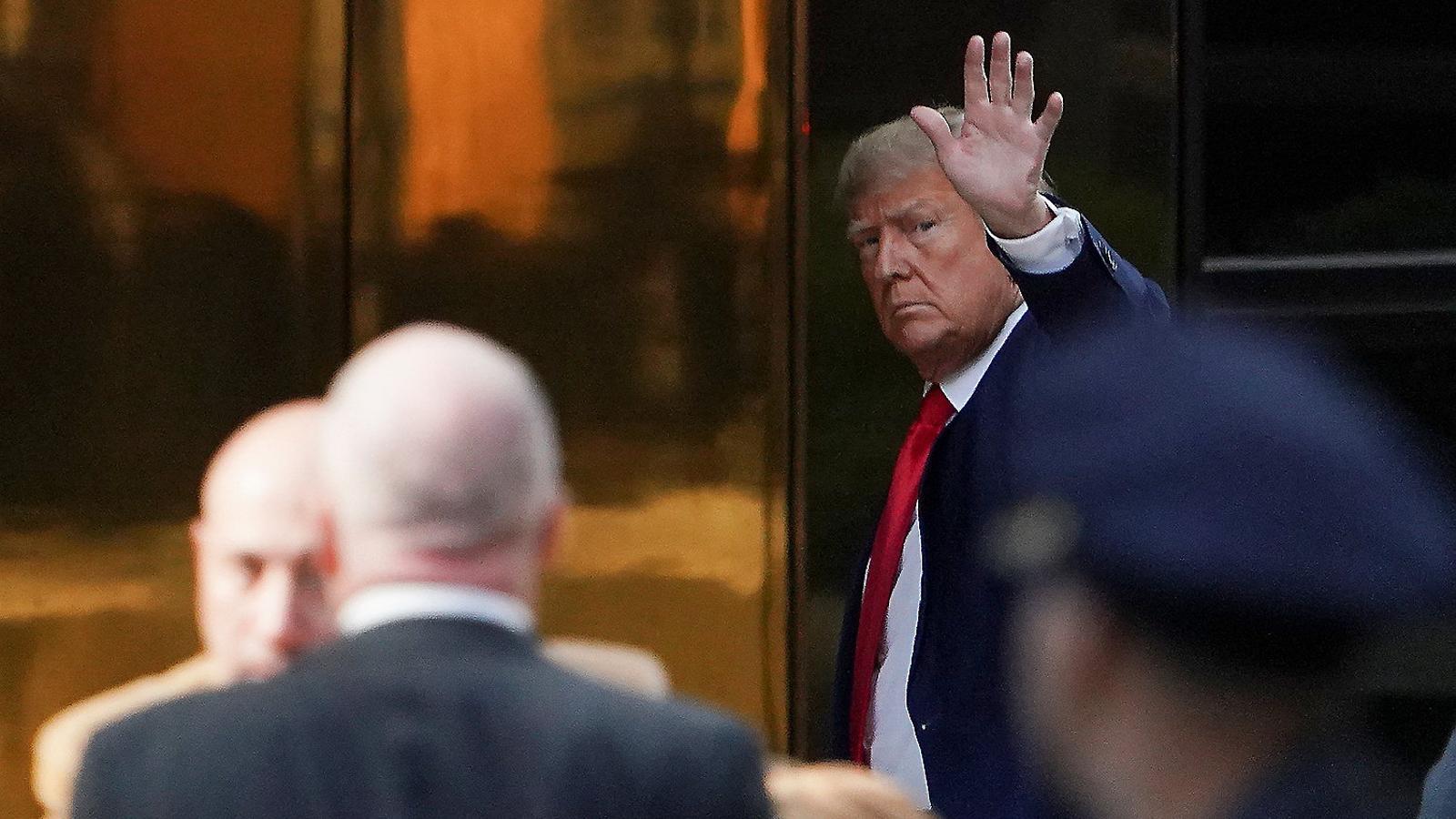Trump declares trade war on the world with reciprocal tariffs
Tariffs are not yet set and will not take effect immediately.


WashingtonNew escalation in the trade war that Donald Trump has declared on the rest of the world. The American president has signed a new order to begin the process of applying "reciprocal" tariffs with the rest of the countries. This is a measure that he had already announced over the weekend, along with the promise of 25% tariffs on steel and aluminum imports. The tariffs have not yet been set and will not take effect immediately. Trump has made no bones about the fact that he intends to use them as a weapon of diplomatic pressure and has assured from the Oval Office that he will be "happy" to negotiate with other countries a reduction in taxes if they do the same.
"We want a level playing field," Trump said. The document orders the administration to develop a comprehensive plan to address what the White House describes as "long-standing imbalances" in the global economy. As he did in Davos, Trump has assured that "if you make your product in the United States, you will not have tariffs." The president has announced that, in addition to the order, he has ordered his government advisers to begin taking measures in the coming weeks regarding vehicles, pharmaceutical products, chips and other goods.
The memorandum orders that it is proposed to respond to all tariffs on North American products, including those taxes that are "unfair, discriminatory or extraterritorial" - without including European VAT -, as well as the costs on North American businesses, workers and consumers who operate in other countries and those "policies and practices that believe that the types of exchange are deviations from their market value." It leaves the door open to review other practices that the Treasury and Commerce secretaries consider.
In total, a period of 180 days is given to present the measures considered necessary to redirect the situation. Commerce Secretary Howard Lutnick has said the first tariffs could come as early as April 1.
"Any country that imposes tariffs on the US, we will tax them," he said during the signing of the document on Thursday. The theory of these reciprocal tariffs is that the United States would apply the same taxes to goods imported from a certain country as those that country applies to US imports. But in practice, these types of taxes can be much more complex than Trump proposes, especially if one thinks about the EU market. In fact, the president has attacked the European VAT and has assured that he will not continue to "tolerate" a tax that, in his opinion, causes tariffs on US exports to "triple."
On previous occasions, Trump's deputy chief of staff, Stephen Miller, had suggested that tariff reciprocity with the EU should also take into account the VAT that is subsequently applied to products imported from the US. Miller argues that the tariff on US imports is not only the one they pay when entering the European market, but is also increased once VAT is applied. For example, he believes that the total impact of tariffs and VAT on US car exports to the EU is about 30%, so it would be only "fair" to charge 30% on European exports to the US.
One European market that could quickly feel the effects of these reciprocal tariffs is the automobile market. While the US applies a 2.5% tariff on imports of European sedans and SUVs, the EU taxes vehicles imported from the US at 10%. If the logic of reciprocity is applied, the tariff on European cars would go from 2.5% to 10%. Or if Trump decides to follow Miller's advice, the increase would be from 2.5% to 30%.
Trump has threatened to impose tariffs on Europe on several occasions under the pretext of reciprocity. Speaking at Davos, the president lamented that the European Union is "treating them unfairly and very badly." According to data from the World Trade Organization, the average weighted tariff rate for US trade is 2.2%, compared to 12% for India, 6.7% for Brazil, 5.1% for Vietnam and 2.7% for the countries of the European Union.
In the midst of the tariff war, many of the tariffs that Trump threatened other countries with have not ended up being applied. The 25% tariffs against Mexico and Canada were stopped just before they came into force thanks to concessions by both countries. The tariffs that the Republican threatened Colombian President Gustavo Petro with also did not materialize.
For now, only the 25% tariffs on aluminium and steel are in place – pending whether the president will apply exceptions, as he did in his first term – and the additional 10% tax on Chinese imports. Faced with this, the Asian giant has responded with 15% tariffs on coal and LNG (liquefied natural gas), and 10% on crude oil, agricultural machinery and some vehicles.
The EU is on guard
Brussels has again warned that it would respond to the US tariffs, but has not yet made any decision and is maintaining its threats. "The European Union will react firmly and immediately against any type of unjustified barrier to free and fair trade," says a statement issued by the European Commission on Friday morning. In addition, Ursula von der Leyen's executive criticizes the New York magnate's "proposal" as "going in the wrong direction." "The EU remains committed to a global, predictable and open market that benefits all partners," says Brussels.
The reciprocal tariffs come after the 25% taxes on aluminum and steel imports have already come into force. The European Union's Trade Ministers met last Tuesday to discuss the response and in Spain the Minister of Economy met with the sector on Monday to evaluate the measure. "I want to send a message of confidence and support to the steel and aluminium sector," said the Minister of Economy, Carlos Cuerpo, who argued that it is "vital" to avoid this type of measures.
The Spanish Association of Aluminium and Surface Treatments (AEA), which represents more than 650 companies in the sector in the State, has also called for "calm". "It is premature to draw conclusions," it said. Spain exports 20,000 tonnes of aluminium a year to the United States, which translates into some 130 million euros.
